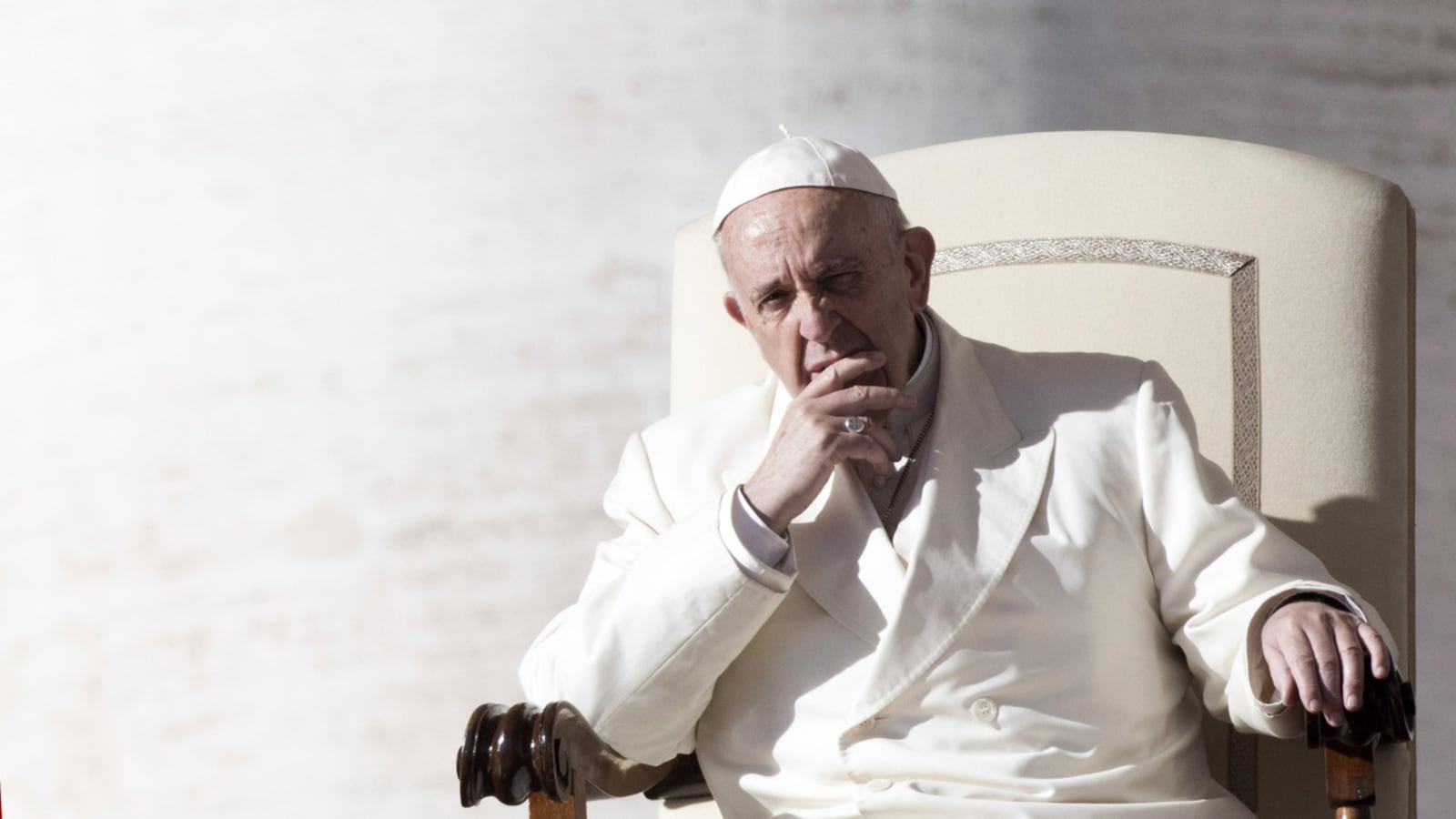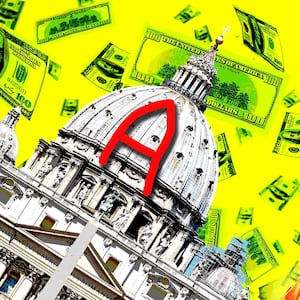ROME–A few hours before Secretary of State Mike Pompeo met with his Vatican counterpart Pietro Parolin in Rome in early October, the Swiss Guard gendarmes raided a key office in Parolin’s department.
They were acting on orders from “up high,” and cleaned out the offices of the Holy See’s Financial Information Authority (AIF), which is essentially meant to be the watchdog agency set up to keep an eye out for any illicit activities at the Vatican Bank, which has been embroiled in dozens of scandals over the years. The gendarmes carted away computers, documents, and as many secret hard drives as they could find. Then they left and sealed the office.
The investigators were looking into what may seem like just the latest scandal within the Vatican’s beleaguered financial system. But this time it touched Pope Francis personally with allegations that money meant for his beloved charities for the poor was actually going into pricey London property and seedy apartments alleged to be used for sinful activities.
Five people, including AIF director Tommaso Di Ruzza, were banned from entering the Vatican’s fortified walls while the investigation tied to the raid was carried out. A wanted poster—featuring photos of the five people who worked in the office and meant for Swiss Guards’ eyes only to know who not to let in—was inevitably leaked to the press.
Pope Francis, to put it mildly, was pissed off that the wanted poster was leaked and the reputations of those on it—who may not be guilty of anything—sullied. A Vatican statement condemned the outing of those on the wanted poster as “prejudicial to the dignity of the people involved.” The pope turned to his security chief Domenico Giani to find out exactly who leaked the photo. On Monday, his detective work still fruitless, Giani resigned.
In his official letter of explanation, he blamed his inability to smoke out whoever leaked the photos. “I felt shame for what happened and for the suffering of these people,” he wrote, according to the letter sent to Vatican accredited journalists. “Having always said I was ready to sacrifice my life to defend the Pope’s, in the same spirit I made the decision to resign.”
Many now wonder if there is more to Giani’s resignation, just as details of the AIF raid are starting to sound something like the explosive scandal in the 1980s tied to American Archbishop Paul Marcinkus, mobsters, Masons, and murder. That scandal is also loosely related to the disappearance of Italian teen Emanuela Orlandi, who some believe was tasked with delivering a message from Marcinkus to someone he was collaborating with or to Orlandi’s father—it has never been clear—and then killed to stop her from testifying. In the Marcinkus scandal, Roberto Calvi, the head of Italy’s largest private bank before it collapsed, which was tied to Marcinkus’ crafty accounting, ended up hanging from Blackfriars Bridge in London with a pocket full of bricks and cash in various currencies.
This latest scandal also leads to the U.K., but so far at least, no one has been killed. The Italian newsmagazine L'Espresso uncovered a trail that leads to a former warehouse for Harrods on Sloane Ave. in London, which the Vatican controls through British Grolux Investments Ltd.— which records show is run by the Vatican's Administration of the Patrimony of the Apostolic See (APSA). Apparently, around $400 million that was earmarked for the pope’s charity fundraiser Peter’s Pence—named for Peter, the Catholic Church’s original pope tapped by Jesus—went to pay off the mortgage of private apartments in the warehouse.
Investigative documents unearthed by L'Espresso say the property now houses about 100 apartments, some of which are frequented by priests and other clergy as a sort of lurid London getaway. There have been reports in the Italian press of gay brothels where priests meet up with young men, and on rarer occasions, young women, as well as other unseemly activities taking place on the premises, but apart from going door-to-door, it is impossible to verify. Rome is filled with gay saunas frequented by priests that operate in the shadow of St. Peter’s Basilica, so it would surprise few if the clergy got up to the same thing when they traveled abroad.
Just days after his gendarmes raided the AIF offices, Francis assigned anti-Mafia prosecutor Giuseppe Pignatone to head the Vatican court assigned to get to the bottom of the Vatican Bank’s alleged charity theft. Previous wrongdoings have been investigated internally. Tapping an outsider like Pignatone marks a change in strategy and sends a clear message that the pontiff doesn’t exactly trust the usual gatekeepers. Among Pignatone’s many accomplishments in his storied career fighting organized crime is helping pull back the curtain on Rome’s own mafia that involved a one-eyed gangster and 40 thieves. Whether the pope believes there is a link between the Roman mafia and the Vatican Bank has not been made clear. The first case Pignatone will preside over is the trial of Angelo Caloia, the former Vatican Bank president who is accused of embezzling millions off Vatican property deals.
The Vatican Bank, officially known as the Institute for Religious Works or IOR, has been sketchy for years. In 2013, the European Central Bank closed down its credit card capabilities, meaning everyone from tour groups slogging through the Vatican Museums to nuns trying to buy rosaries had to pay cash on Vatican property. In 2014, Francis created the first ever Secretariat for the Economy to try to unravel the mess. But the first head of that department was Cardinal George Pell, now appealing a child sex abuse conviction in Australia. Pell had announced the discovery of hundreds of millions of dollars that were not accounted for when he first took the job. He has not yet been replaced and doesn't look like he will return any time soon. It is little wonder that Francis has been left with no choice but to handle things first-hand if he ever hopes to clean up the Vatican’s dirty money problems.







